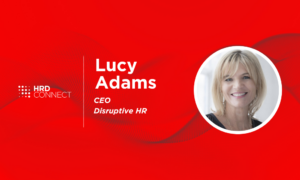Designing change readiness in talent
- 6 Min Read
Talent is always changing. For companies to keep up, designing a change-ready business strategy is paramount to succeed in the future.
- Author: Louron Pratt
- Date published: Jan 20, 2020
- Categories

Many businesses need to take on a change readiness mindset, but how can they do this, and why? Wise words from Sally Sourbon, Senior HR Director, EMEA, Service Now, Hollie Thomas, HR Manager, Heat Recruitment, and Nadine Smart, Head of Talent, Cirrus, helped HRD to find the answers.
“To successfully implement effective change, it’s important for management to exercise strong leadership skills. Taking a scattergun approach with change will cause unrest to your staff, so ensure to plan carefully, conduct and refer to analysis and expect the unexpected,” said Hollie Thomas, HR Manager, Heat Recruitment.
Hollie believes that HR can be a vital asset in understanding change in business. To develop a change-ready mindset, businesses need to be transparent and not rush the process of change. Organisations must prepare themselves to regularly innovate as they prepare for advancements in business and talent.
“In a high growth environment like ServiceNow, change is the constant that we are used to and have to be prepared for. By being a purpose-led company, we have found our culture to be a stronghold in the ability to be prepared for change,” said Sally Sourbon, Senior HR Director, EMEA, Service Now.
“From a talent perspective, we find that hiring from a diverse talent pool, particularly millennials and generation X/Y/Z, has also helped as these generations can adapt more quickly to change.”
There is a high level of importance to be ready for change in business, however, it is a tall ask for many leaders to implement changes necessary to be ready for turbulent times. Nadine believes that it requires a huge shift in mindset.
“Making this shift can be tough. It often requires real cultural and behavioural change. The results, however, can have a deep and lasting impact – not only on individual employees but also across the entire organisation,” explained Nadine Smart, Head of Talent, Cirrus.
“Performance management programmes are an important and valuable tool for driving business strategies forward. In recent years, there has been a big move from traditional performance management systems towards a more holistic, agile approach to improving individual and organisational performance.”
Many organisations that look to prepare for change may put their culture and values at risk. Consequently, ensuring that employees are satisfied with change is crucial.
“Shifting culture and the habits formed in the way we do things is always a challenge. To help our workforce at ServiceNow feel comfortable with our changing culture, we are coaching our managers and leaders around having a growth mindset,” continued Sally.
“When an organisation has a culture of a growth mindset, its employees embrace disruption and change to continuously improve, they see setbacks as opportunities to learn and develop, and they continually try new things rather than having a fixed mindset. For this growth mindset to become habitual or the cultural norm there needs to be a level of physiological safety within an organization, where these behaviours must be recognized and rewarded.”
Can creating a mindset of change positively benefit every employee? Businesses may have to undergo colossal change to ensure that this culture is right, but is it worth the time and resources? Hollie believes so.
“Fostering a culture of change is extremely beneficial for the retention of talent. Nurturing agile employees that embrace change and development will allow you to manoeuvre the business to keep ahead of trends or disruption. Change is implemented within a business to benefit it – employees must understand this,” continued Hollie.
“Motivation and productivity are improved as employees and management work together to accomplish clear, common goals. Ultimately, if organisations take a people-focused approach and keep communication transparent, they may already be on their way to creating change-ready mindsets.”
Digitalisation is completely changing the way that businesses operate, a change-ready mindset means an organisation will remain competitive and relevant in the space in which it operates.
“Investing in capability building, creating clear and straightforward guides and information packs will bring everyone to the same level as well as investing time with managers to establish a shared and consistent understanding of expectations will help provide the much-needed support for the programme,” explained Nadine.
Preparing for change begs the question, why is there so much change in business and talent today? Understanding why things are changing may be the first step to creating a change-ready strategy.
“There is an abundance of factors that provoke change from customer demand to innovations in technology; changing markets to demand talent. In 2020 and beyond the development in understanding around wellbeing and work-life balance will be a key factor influencing positive change within a business – it’s certainly an area of focus for us,” continued Hollie.
Additionally, Sally thinks that competition is the main reason for fast-paced change in business today.
“Competition, the expectations of a multi-generational workforce, and the acceleration of the digital revolution are driving constant change in business. Employees want consumer-like experiences in the way they work, and they also expect more from the organization they work for, from a cultural perspective,” explained Sally.
“Fostering a culture of diversity, inclusion and belonging at work is no longer a ‘nice thing to do’, it’s a business imperative. Work isn’t only about revenues and performance. In a purpose-driven business like ServiceNow, it’s about creating an environment where everyone can bring their true self to work, feel like they belong, and contribute to the organization’s success.”
Due to change not being an uncommon issue, many businesses have always had processes in place to manage shifts. However, in recent times, the process behind change management has changed.
Hollie believes that organisations still have a lack of understanding of the benefits it can bring. It can be difficult for companies to initiate change management as it can be risky stepping into the unknown. Despite this, positive change is dramatically improving business and those with a change-ready mindset are evolving leaps and bounds faster than the competition.
Sally concluded by explaining how start-ups have been taking on a change mindset for the last decade, replicating large companies who embed this into their cultures.
“Today, the digital revolution at work will need organisations to be prepared and ready to evolve as change is our only constant,” concluded Sally.
Additionally, Nadine believes that clear and concise movements are the key to success “Investing in capability building, creating clear and straightforward guides and information packs will bring everyone to the same level as well as investing time with managers to establish a shared and consistent understanding of expectations will help provide the much-needed support for the programme,” concluded Nadine.








